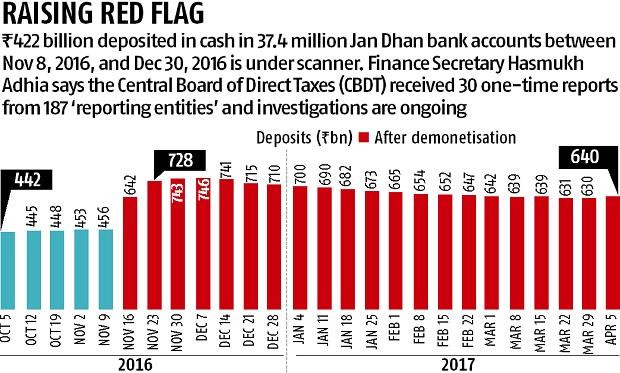Even though I will miss the adrenaline rush of finding my byline in the paper every morning, I am really excited about starting a new journey with a digital platform.
A personal update: Monday was my last day at Business Standard and I can truly count the past 3 years as the golden phase of my career, where I got the opportunity to not only report but also break some of the biggest news stories during this period.
Even though I will miss the adrenaline rush of finding my byline in the paper every morning, I am really excited about starting a new journey with a digital platform.
https://t.co/NJAcIwAgmC
https://t.co/JmN7VjQxkC
This letter written by the finance ministry to the RBI became the first point of friction between the govt and the regulator. (Ultimately, Urjit Patel had to step down as the RBI Guv)
https://t.co/Z4oFEDZUr8
This was followed by extensive coverage on the issue (the govt did acknowledge publicly that there was a cash crunch).
https://t.co/KU67ulaTMO
I reported how PNB (of all banks) didn't receive a crucial directive sent by the RBI in 2016 asking all lenders to strengthen their risk mechanism to avert fraud.
The story about a missing e-mail
https://t.co/My6Ll42Bp0
https://t.co/IREwm8LeOU
https://t.co/3801yfOJRg
https://t.co/BYCVe5kcpq
https://t.co/O3jIuI0dpM
https://t.co/YXDTiarSFh
https://t.co/JCcyzd75gD
https://t.co/gwsYVOQnle

https://t.co/FyagN0UMrY
https://t.co/4A2uw3gppj
https://t.co/FBcV5VTggg
https://t.co/NZGwD4EUpI
https://t.co/9YsxMzBlqr
https://t.co/qMluVa4rLP
https://t.co/GLfNOlEhv0
https://t.co/zejgxPn4MI
More in this thread:
https://t.co/5Kur6wiMyf
Breaking: India's chief economic advisor wants the junked consumer spending report to be made public. Krishnamurthy Subramanian wrote to the National Statistical Commission seeking the survey report of 2017-18 for analysis in the upcoming Economic Survey.https://t.co/IizS3SqQ7i
— Somesh Jha (@someshjha7) December 7, 2020
https://t.co/ibihPxveAS
https://t.co/6FUJaLAwHv
https://t.co/fNh0ltutDe
https://t.co/tX2sCof3Ki
https://t.co/TFMEXfArWD
https://t.co/0xbfbf4qmI
I went to the ground to cover the plight of migrants:
https://t.co/6XSOHu5TDa
https://t.co/wIym1nCfbH
https://t.co/cEA9TmcWaB
https://t.co/Dshk24AcZG
https://t.co/YYY6N284aV
https://t.co/rNMyZpedLj
https://t.co/1NyDcish0A
https://t.co/EGH3qvWJVZ
https://t.co/IPapM0bzog
https://t.co/kv252xNHwE
https://t.co/m6QCiNEEYK
https://t.co/j3AkQ7ihHY
https://t.co/Bn7Kn0W02V
https://t.co/LaGJPOQ3pC
https://t.co/Zx2ZI1uzHJ
https://t.co/3q39YKHJqQ
https://t.co/ox3TMwbSR5
...while also highlighting the issues in the labour laws:
https://t.co/IqiVrt0ri4
https://t.co/lzzeLVL3h0
More from Crypto
1/ A thread on Nexgen’s Arrow & the #uranium cycle ($NXE)
2/ Given the scale and cost structure of Arrow, it makes sense that investors are intensely focused on its delivery timeline. This thread will discuss possible timelines, current market expectations (i.e., what’s “priced in”) & how different Arrow scenarios will impact the mkt.
3/ As you can see from the litany of responses to Michael’s tweet, there is great skepticism in the market regarding Arrow’s timeline. This is largely due to a bearish narrative conveyed by competing CEO’s whose assets only hold value if Arrow is substantially delayed.
4/ Those who played “King of the Hill” as a child would remember that it is the person at the top who is constantly attacked, not the kid sitting at the bottom of the hill in the mud. No one cares enough about that kid to attack them. This is a good parable for $NXE & Uranium.
5/ First a quick note on “this cycle” – Segra generally defines this cycle as the deficits forecasted from the mid-2020s to late-2030s. When people imply an asset producing in the mid-to-late 2020s will “miss the cycle”, they clearly have not done any real S/D modelling.
Can anyone tell me an estimated time frame that Nexgen could be permitted, start building their mine and be producing #uranium ??? @quakes99 @JekyllCapital @travmcph @NexGenEnergy $nxe
— Michael Pierce (@Big_U_Dawg) January 22, 2021
2/ Given the scale and cost structure of Arrow, it makes sense that investors are intensely focused on its delivery timeline. This thread will discuss possible timelines, current market expectations (i.e., what’s “priced in”) & how different Arrow scenarios will impact the mkt.
3/ As you can see from the litany of responses to Michael’s tweet, there is great skepticism in the market regarding Arrow’s timeline. This is largely due to a bearish narrative conveyed by competing CEO’s whose assets only hold value if Arrow is substantially delayed.
4/ Those who played “King of the Hill” as a child would remember that it is the person at the top who is constantly attacked, not the kid sitting at the bottom of the hill in the mud. No one cares enough about that kid to attack them. This is a good parable for $NXE & Uranium.
5/ First a quick note on “this cycle” – Segra generally defines this cycle as the deficits forecasted from the mid-2020s to late-2030s. When people imply an asset producing in the mid-to-late 2020s will “miss the cycle”, they clearly have not done any real S/D modelling.
Michael Pettis @michaelxpettis argues that it is not always obvious who (China or the U.S.) adjusts best to "turbulent changes."
Bitcoin answers that question.
Thread:
World economies currently suffer four major redistribution challenges:
The most important is increasing government stealth use of the monetary system to confiscate assets from productive actors.
/2
That process is exacerbated by "Cantillon Effect" transfers to interest groups close to government ("the entitled class," public sector workers, the medical industrial complex, academia, etc....), which is destroying much of that wealth /3
The shadow nature (see Keynes) of government inflation makes the process unidentifiable, un-addressable and undemocratic.
The biggest victims (America's poorly educated young) are unequipped to counter generational confiscation tactics of today's wily senior beneficiaries. /4
Government control of the numéraire in key economic statistics (GDP, inflation, etc...) makes it impossible for economic actors to measure progress and liabilities. /5
Bitcoin answers that question.
Thread:
1/11
— Michael Pettis (@michaelxpettis) January 11, 2021
An article worth thinking about: \u201cAs changes to the world structure accelerate, China\u2019s rule is in sharp contrast with the turmoil in the West,\u201d says Beijing.
I agree, but I draw a different conclusion. The world is certainly currently going...https://t.co/ugha7ygqqx
World economies currently suffer four major redistribution challenges:
The most important is increasing government stealth use of the monetary system to confiscate assets from productive actors.
/2
That process is exacerbated by "Cantillon Effect" transfers to interest groups close to government ("the entitled class," public sector workers, the medical industrial complex, academia, etc....), which is destroying much of that wealth /3
The shadow nature (see Keynes) of government inflation makes the process unidentifiable, un-addressable and undemocratic.
The biggest victims (America's poorly educated young) are unequipped to counter generational confiscation tactics of today's wily senior beneficiaries. /4
Government control of the numéraire in key economic statistics (GDP, inflation, etc...) makes it impossible for economic actors to measure progress and liabilities. /5



























